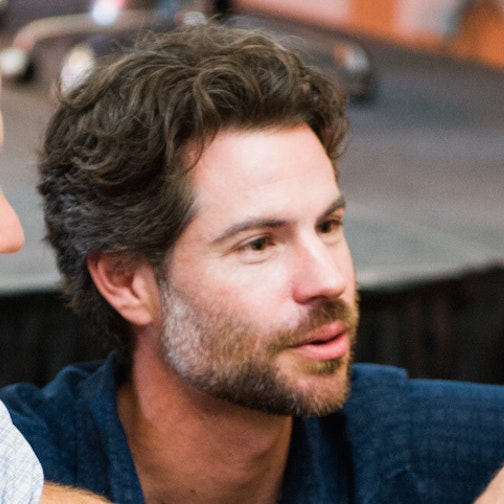Occupy Wall Street and the New Inequality
-
-
Share
-
Share via Twitter -
Share via Facebook -
Share via Email
-
If Occupy Wall Street protesters have struggled to articulate their demands beyond taxing the rich, part of their challenge is the changed nature of the economy. In a new article for The Breakthrough Journal, NYU sociologist Dalton Conley notes that while the 1929 stock market crash reduced inequality by wiping out fortunes, the 2008 crash provoked measures that sustained it. "But greater equality after the crash came at a very high price: the Great Depression. So while the response to the 2008 crisis sustained the top-heavy structure of the American economy, it also averted the free fall that threw tens of millions of Americans into unemployment and breadlines throughout the 1930s."
Moreover, even as the gap between the "99%" and the richest one percent has grown, "the interests of workers are increasingly yoked to those of their bosses," Conley notes. "Half of Americans today have direct or indirect investments in the stock market, largely thanks to the shift to defined contribution pension plans and the ease of Internet investing... So if the rest of us want to save our 401ks, we have to save the status quo for the robber barons of Wall Street in the process."
Couldn't the problem have been solved by nationalizing the banks and redistributing wealth? Such a strategy "might have distributed the costs and benefits of the bailouts more fairly," writes Conley, and "higher income taxes on the rich, along with more strongly redistributive social programs might succeed in mitigating some degree of inequality. But there are also powerful socioeconomic forces driving inequality." Conley points to growing global demand for elite knowledge workers (such as by the financial sector) and the widening skills gap.
How should liberalism evolve to deal with the new inequality? By shifting its focus from absolute to relative poverty. When Americans were poor, liberalism's priorities were food and shelter. Now most Americans are overweight and own their own homes. At the same time, poor and working-class Americans, living in districts with low-performing schools, are at serious risk of being left behind. Liberalism must thus focus on to new ways to expand opportunity, and Conley lays out several.
We should decouple school funding from local property taxes -- and/or allow school choice, so the poor can attend elite schools. "Yes," writes Conley, "fund private school attendance with vouchers, but require participating schools to enroll students from across the income spectrum, thereby increasing opportunity for education and facilitating entrance into the knowledge class."
We should "de-skill" credentialing monopolies in health care and education. "For example, health care could be provided more affordably if everyone was willing to see nurse practitioners or medical assistants in drive-through clinics and forsake the latest high-tech tests and procedures. College could be more affordable if we adopted an open courseware model and de-emphasized the need for face-to-face contact with faculty members."
Finally, we must go beyond the fantasy that America's problems can be fixed simply through higher taxes on the richest one percent. Liberals should embrace reform that could appeal to both reasonable liberals and reasonable conservatives. Tax all income, including capital gains, the same, but also implement a national, value-added (sales) tax, and restrict government revenue to 25 percent of GDP.
While Tea Partiers and Wall St. Occupiers offer ideological slogans to vexing problems, Conley's ground-breaking essay points to a set of pragmatic solutions -- solutions with the potential to appeal to Americans divided by ideology but united in their view that expanding opportunity is a core national value.


